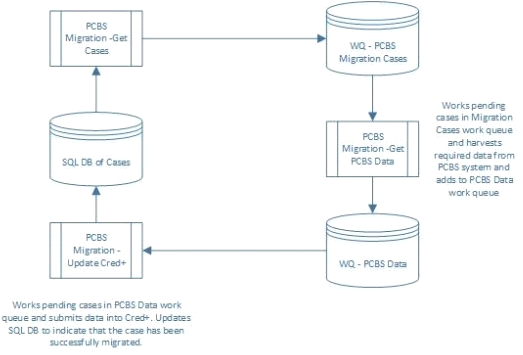At ValidExamDumps, we consistently monitor updates to the Blue Prism ASD01 exam questions by Blue Prism. Whenever our team identifies changes in the exam questions,exam objectives, exam focus areas or in exam requirements, We immediately update our exam questions for both PDF and online practice exams. This commitment ensures our customers always have access to the most current and accurate questions. By preparing with these actual questions, our customers can successfully pass the Blue Prism Designing Blue Prism Process Solutions exam on their first attempt without needing additional materials or study guides.
Other certification materials providers often include outdated or removed questions by Blue Prism in their Blue Prism ASD01 exam. These outdated questions lead to customers failing their Blue Prism Designing Blue Prism Process Solutions exam. In contrast, we ensure our questions bank includes only precise and up-to-date questions, guaranteeing their presence in your actual exam. Our main priority is your success in the Blue Prism ASD01 exam, not profiting from selling obsolete exam questions in PDF or Online Practice Test.
If a solution is to make use of a queue with Maximum Attempts greater than 1. what should the designer put in place? (select 2 responses)
MedBank have recently introduced a new Credit Card platform Cred+ There is a requirement to migrate account and card details from the existing banking platform PCBS on to Cred+-
Account IDs of the cases requiring data transfer will be held on a SQL database The requirement is that, for each account ID specified on the SQL database, the following data must be read from the PCBS application and input into the Cred+ application:
* Account ID
* Product Type
* Name
* Address
* Date of Birth
* Card PAN (Primary Account Number or credit card number)
* Card Issue Date
* Card Expiry Date
Once the data has been successfully input into Cred+ the correct record on the SQL database will be updated to indicate data transfer is complete. All work queues will be encrypted, however due to the sensitivity of the dat
a. MedBank insist that a single robot account does not have access to both PCBS and CRED+ systems. The following high level design has been proposed:

Which of the following statements about the solution design are correct? (select 2 responses)
You are the Lead Developer tasked with delivering four processes for the same client. You have enough developers in the team to develop all the processes in parallel. All the processes have one application in common, another application is used by two processes and one process uses an application that none of the others do. Which of the following statements is true?
Imagine you are designing the application integration logic for a solution. One of the applications involved is one you have not automated before but it is widely used and the project is the first in a series for this client. Which of the following are valid considerations when designing business objects? (select 2 responses)
Which of the following accurately describes best practice when work is sourced from an application's workflow system?